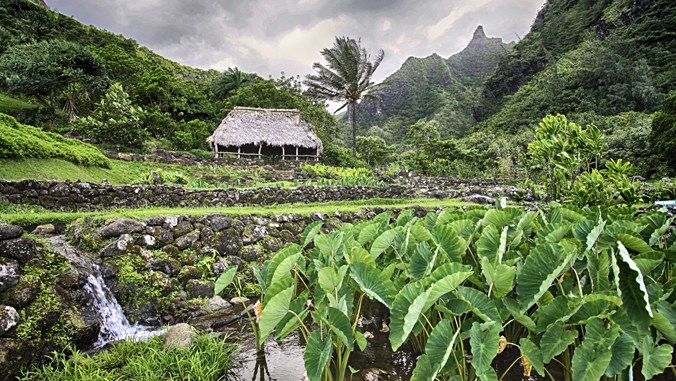Largest Collection of Scientific Publications by Native Hawaiians Compiled
A group of researchers from the University of Hawaiʻi teamed up with colleagues from other universities and several Native Hawaiian communities to compile conservation findings in a special issue of Sustainability that will be the largest collection of scientific publications made by Native Hawaiians. The group’s work focuses on biocultural restoration in Hawaiʻi.
The work collectively highlights Hawaiʻi as a global leader in the realm of biocultural restoration and aims to influence policy both locally and internationally.
Biocultural restoration is an approach that incorporates both humanity and its connections to nature in a larger effort to restore the health, function and resilience of both land- and seascapes. Articles in the special issue range in focus from the theoretical, to philosophical, to applied aspects of such an approach to restoration.
Reflections of Native Hawaiian, women authors
Nearly 100 authors contributed to 14 articles in the special issue, reflecting the collaborative nature of the papers. The publication represents a new emphasis in applied participatory research that involves academics, government agencies, communities and both private and nonprofit sectors.
More than a third of the authors are of Native Hawaiian ancestry; each paper had at least one Native Hawaiian author; and several papers had a Hawaiian lead author, making this the largest collection to date of scientific publications authored by Native Hawaiians.
In addition, the majority of authors are women, and two of the papers had 100 percent authorship by women.
“After the call for papers went out, we were pleasantly surprised to see that all the submitted papers had both Native Hawaiian and women authors, even though it makes sense that the work of caring for and restoring our mother earth is done by native peoples and women in particular,” said guest editor Noa Kekuewa Lincoln, an assistant researcher in the College of Tropical Agriculture and Human Resources. “It wasn’t until the dust settled that we realized this had to be some kind of milestone.”
Added lead guest editor Kawika Winter, who manages the Heʻeia National Estuarine Research Reserve and is an assistant specialist at the Hawaiʻi Institute of Marine Biology, “Many of us have spent our lives endeavoring to translate ancestral wisdom for a contemporary global audience. We have found that producing and interpreting scientific data is one of the most effective ways to do this.”
Bolstering support for restoration projects
The research not only bolsters support for on-the-ground restoration projects in Hawaiʻi, such as community-based efforts that build off of a strong sense of place, it also has a global impact. Since Hawaiʻihosted the World Conservation Congress in 2016, the story and potential of its community, culture and conservation efforts have resonated globally.
“In these complex times, while governments remain idle, senescent, or even compromised, a global community of natural resource managers, academics and grassroots leaders have begun to share and learn from each other,” said guest co-editor Kevin Chang, executive director of the nonprofit KuaʻāinaʻUlu Auamo. “They seek practical pockets of hope, in successful restoration efforts and governance at the local level, for innovation and inspiration.”
Far beyond Hawaiʻi, this special issue also has applications for thought leaders who have been working in the realm of international policy. It shows that people need to be considered an integral part of nature, and solving environmental problems requires the use of a biocultural approach.
“This special issue captures decades of accomplishments in biocultural revitalization, and puts Hawaiʻi at the forefront of the global effort to restore the health of social-ecological systems,” said Fikret Berkes, a world renowned human ecologist who has spent decades in the international sphere, and acted as the subject editor for Sustainability to facilitate the special issue. “Some colleagues in Hawaiʻi have expressed to me that they feel they have been working in isolation. Well, not anymore.”
Sustainability is an international, cross-disciplinary, scholarly, peer-reviewed and open access journal of environmental, cultural, economic and social sustainability of human beings. A large portion of the publishing costs associated with the special issue was provided through funding from the Hawaiʻi Community Foundation.
Sponsored Content
Comments









